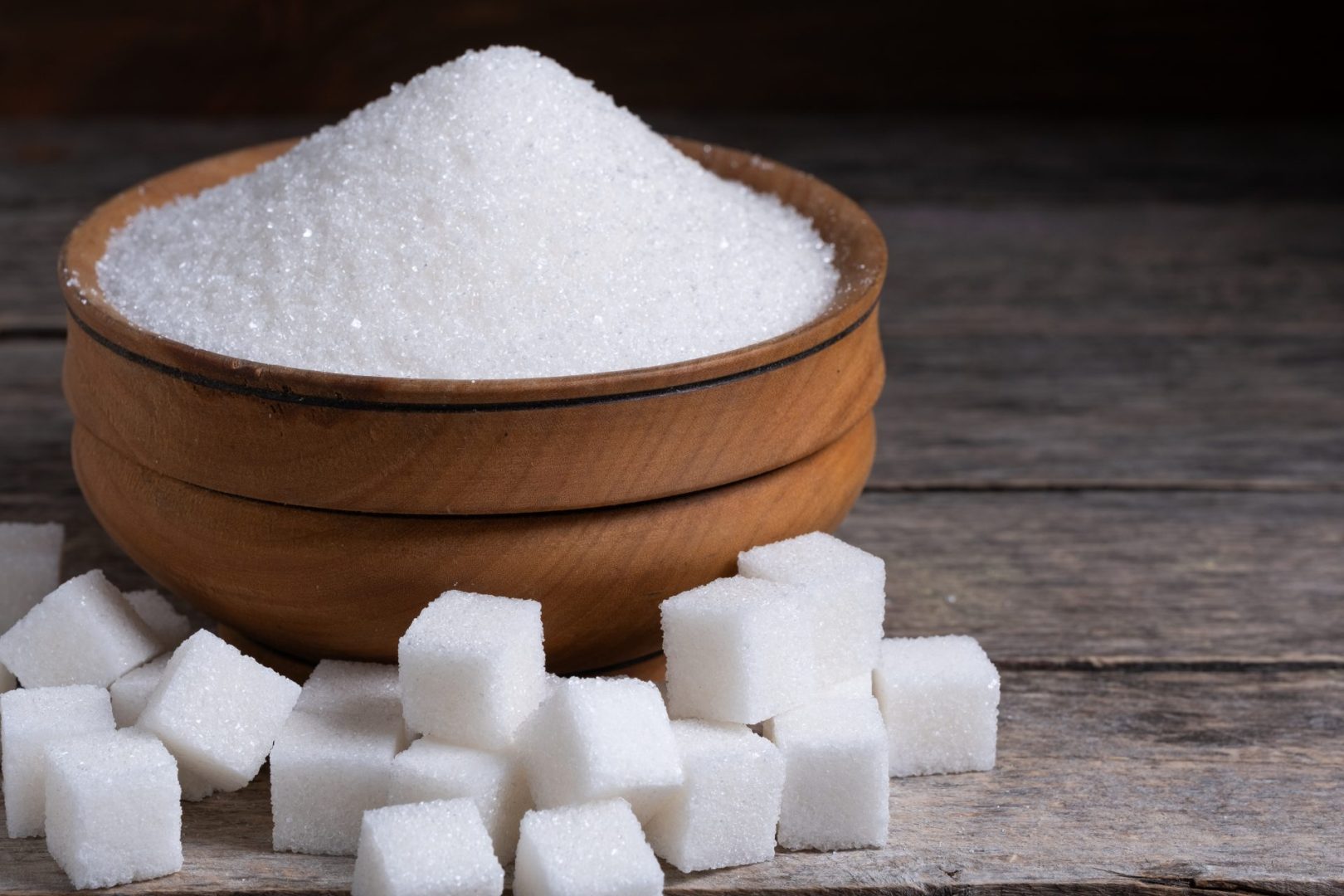The relationship between sugar consumption and cancer development represents one of the most concerning nutritional discoveries of recent decades. While many people understand that excessive sugar intake contributes to obesity and diabetes, fewer realize that sugar serves as a preferred fuel source for cancer cells, potentially accelerating tumor growth and making treatment more challenging.
Cancer cells exhibit fundamentally different metabolic patterns compared to healthy cells, and their voracious appetite for sugar creates a direct pathway between dietary choices and disease progression. Understanding these mechanisms empowers individuals to make informed decisions about their sugar consumption and its potential impact on cancer risk and progression.
1. Cancer cells consume sugar at accelerated rates
Cancer cells demonstrate an insatiable hunger for glucose that far exceeds the needs of normal, healthy cells. This phenomenon occurs because malignant cells have undergone metabolic reprogramming that makes them extremely efficient at capturing and utilizing available sugar from the bloodstream.
The accelerated sugar consumption by cancer cells creates a competitive environment within the body where tumors essentially hijack glucose resources that would normally support healthy cellular functions. This metabolic advantage allows cancer cells to maintain rapid growth rates even when other body systems begin showing signs of nutritional stress.
The preferential uptake of sugar by cancer cells becomes so pronounced that medical imaging techniques like PET scans rely on this principle, using radioactive glucose to identify tumor locations throughout the body. The areas that light up most brightly on these scans represent regions where cells are consuming sugar at the highest rates.
2. High blood sugar creates optimal tumor environments
Elevated blood glucose levels create conditions that favor cancer cell survival and proliferation. When blood sugar remains consistently high through frequent consumption of sugary foods and refined carbohydrates, the internal environment becomes increasingly hospitable to malignant cell growth.
The sustained presence of elevated glucose in the bloodstream provides cancer cells with a constant fuel supply, eliminating the metabolic stress that might otherwise limit their growth potential. This abundant energy source allows tumors to maintain aggressive expansion patterns without the typical constraints that would slow their development.
High blood sugar also triggers inflammatory responses throughout the body, and chronic inflammation creates cellular damage that can promote the development of new cancerous changes while supporting the growth of existing tumors. This inflammatory environment further accelerates the progression from healthy cells to malignant ones.
3. Sugar disrupts immune system function against cancer
Regular consumption of high amounts of sugar significantly impairs immune system function, reducing the body’s natural ability to identify and destroy cancer cells before they can establish tumors. The immune suppression that follows sugar consumption can last for several hours after eating, creating windows of vulnerability.
White blood cells, which serve as the body’s primary defense against abnormal cells, become less effective at their surveillance and destruction functions when blood sugar levels spike. This reduced immune vigilance allows cancer cells to evade detection and elimination during critical early stages of development.
The immune system dysfunction caused by sugar consumption also affects the body’s ability to mount effective responses against established tumors. Cancer treatments that rely on immune system activation become less effective when sugar intake continues to suppress these crucial defensive mechanisms.
4. Insulin production promotes cancer cell growth
High sugar consumption triggers increased insulin production, and insulin itself acts as a growth factor that can stimulate cancer cell division and tumor expansion. The hormone insulin not only helps cells absorb glucose but also sends signals that promote cellular growth and reproduction.
Cancer cells often develop increased sensitivity to insulin and insulin-like growth factors, making them particularly responsive to the growth-promoting signals that accompany elevated insulin levels. This enhanced responsiveness means that cancer cells receive stronger proliferation signals compared to normal cells when insulin levels rise.
The chronic elevation of insulin levels that results from frequent sugar consumption creates a persistent growth-promoting environment that favors tumor development and progression. This hormonal environment can accelerate the transition from small, manageable tumors to larger, more aggressive masses.
5. Sugar metabolism produces cancer-supporting compounds
The process of metabolizing large amounts of sugar generates various byproducts and metabolic changes that create conditions favorable to cancer development and progression. These metabolic alterations extend beyond simple energy provision to include the production of compounds that actively support tumor growth.
Sugar metabolism in cancer cells produces lactate, which creates an acidic environment around tumors that can promote invasion into surrounding healthy tissues. This acidic microenvironment also helps cancer cells resist certain types of treatment and supports the development of blood vessels that feed growing tumors.
The metabolic pathways activated by high sugar consumption also generate reactive oxygen species and other compounds that can cause DNA damage in healthy cells, potentially triggering the initial cellular changes that lead to cancer development. This creates a cycle where sugar consumption both initiates and accelerates cancerous changes.
6. Refined sugars accelerate metastasis processes
The consumption of refined sugars and processed sweeteners appears to specifically enhance cancer cells’ ability to spread to distant locations throughout the body, a process known as metastasis. This spreading capability represents one of the most dangerous aspects of cancer progression.
Refined sugar consumption affects the expression of genes involved in cell adhesion and movement, making it easier for cancer cells to detach from primary tumors and travel through the bloodstream or lymphatic system to establish new colonies in distant organs.
The metabolic changes triggered by refined sugar intake also support the development of new blood vessels that tumors need to establish themselves in new locations. This angiogenesis process becomes more active when sugar consumption provides the energy and signaling molecules necessary for rapid blood vessel formation.
7. Sugar creates cellular inflammation that fuels tumors
Chronic sugar consumption triggers inflammatory processes at the cellular level that create an environment conducive to cancer development and progression. This inflammation differs from the acute inflammatory responses that help fight infections, instead representing a low-grade, persistent inflammatory state.
The inflammatory compounds produced in response to high sugar intake can damage DNA in healthy cells, increasing the likelihood of mutations that lead to cancer. These same inflammatory signals also support tumor growth by promoting blood vessel formation and suppressing immune responses that would normally eliminate abnormal cells.
Sugar-induced inflammation also affects cellular communication systems, disrupting the normal signals that control cell growth and death. This disruption can lead to the uncontrolled cellular proliferation that characterizes cancer while simultaneously making it more difficult for the body to eliminate these aberrant cells.
The sugar-cancer connection in daily life
Understanding how sugar feeds cancer cells transforms everyday food choices into potential health decisions with far-reaching consequences. The typical Western diet contains sugar levels that consistently maintain elevated blood glucose, creating optimal conditions for cancer cell survival and growth throughout the day.
Hidden sugars in processed foods, beverages, and seemingly healthy options contribute to cumulative sugar loads that many people don’t realize they’re consuming. These consistent sugar exposures maintain the metabolic conditions that favor cancer development even when individuals believe they’re making moderate dietary choices.
The timing and type of sugar consumption also influence cancer risk, with refined sugars and high-fructose corn syrup appearing to have more pronounced effects on cancer-promoting pathways compared to naturally occurring sugars consumed as part of whole foods.
Breaking the sugar-cancer cycle
Reducing sugar consumption requires more than simply avoiding obvious sweets, as sugars hide in countless processed foods, sauces, and beverages that form the foundation of many people’s diets. Reading ingredient labels becomes crucial for identifying and eliminating hidden sources of added sugars.
The transition away from high-sugar eating patterns often involves temporary challenges as taste preferences adjust and blood sugar regulation improves. However, these short-term difficulties pale in comparison to the long-term health benefits of starving potential cancer cells of their preferred fuel source.
Replacing high-sugar foods with nutrient-dense alternatives provides the body with compounds that actively support immune function and cellular repair while eliminating the metabolic conditions that favor cancer development. This dietary shift represents one of the most powerful preventive strategies available to individuals.
Natural alternatives and protective strategies
Certain natural compounds and foods appear to interfere with cancer cells’ ability to utilize sugar effectively, potentially providing protective effects even when some sugar consumption continues. These protective foods work through various mechanisms to disrupt the metabolic advantages that cancer cells derive from sugar availability.
Fiber-rich foods slow sugar absorption and help maintain more stable blood glucose levels, reducing the dramatic spikes that create optimal conditions for cancer cell growth. The beneficial bacteria supported by fiber consumption also produce compounds that appear to have anti-cancer properties.
Specific nutrients and plant compounds can interfere with the metabolic pathways that cancer cells use to process sugar, essentially making their preferred fuel source less available even when dietary sugar intake occurs. These protective strategies offer additional layers of defense against sugar-fueled cancer progression.
The urgency of awareness
The connection between sugar consumption and cancer progression represents more than an academic concern, as the typical modern diet provides cancer cells with abundant fuel for accelerated growth and spread. Every meal and snack choice either supports or undermines the body’s natural cancer defense mechanisms.
The cumulative effects of daily sugar consumption create long-term changes in cellular metabolism, immune function, and inflammatory status that persist beyond individual eating episodes. These persistent changes mean that dietary patterns, rather than occasional indulgences, determine the overall cancer-promoting or cancer-protective environment within the body.
Understanding these mechanisms empowers individuals to make informed decisions about their sugar consumption, recognizing that reducing intake represents a powerful strategy for cancer prevention and potentially improving outcomes for those already facing cancer diagnoses. The choice to limit sugar consumption becomes not just a dietary preference but a fundamental health protection strategy.














